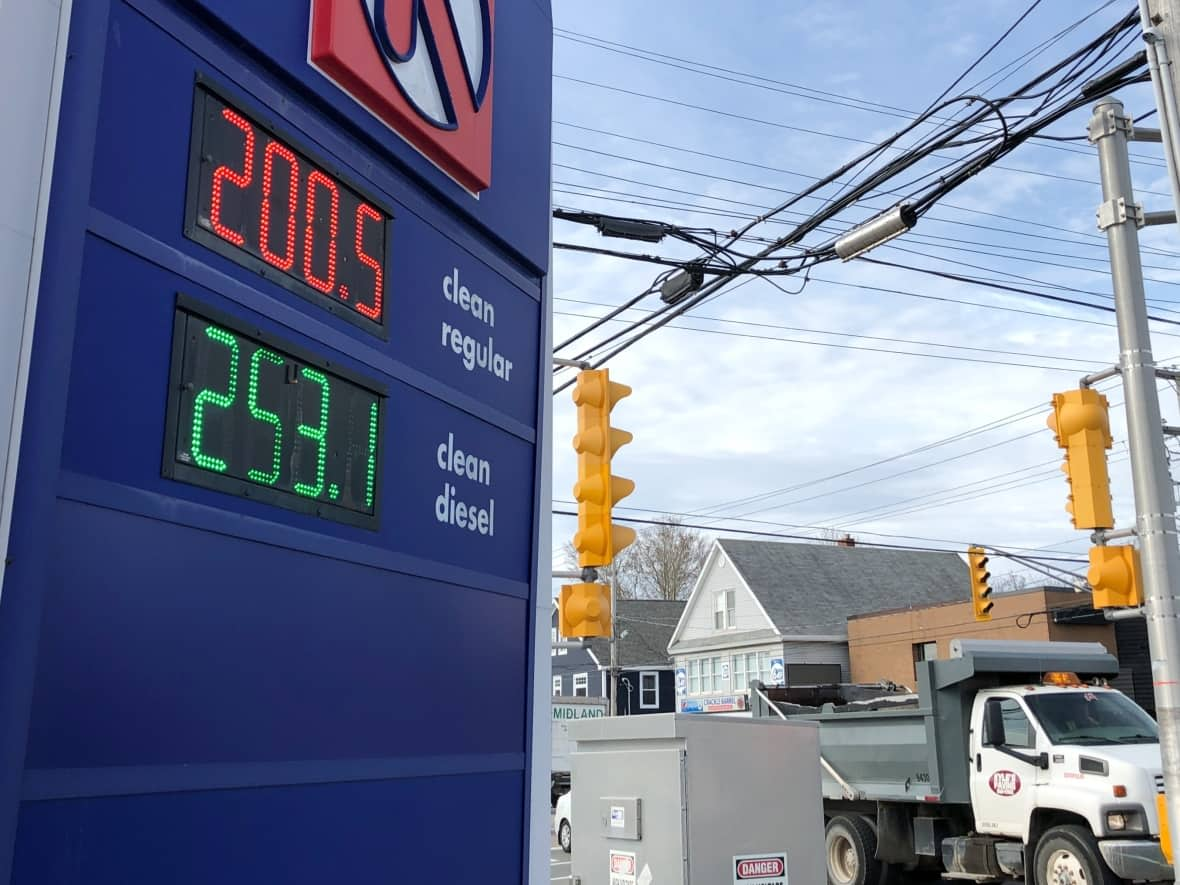Sask. gas prices top $2 per litre, and city, town budgets are feeling the pinch

Cities, towns and villages are bracing for blown budgets as the price of fuel climbs even higher in Saskatchewan.
On Tuesday, the price of regular gas hit a record $2.06 per litre at some stations while averaging $1.99 across the province.
"Saskatchewan is still one of the cheapest places in Canada, around $2 a litre. That sounds absolutely numbing," said Patrick de Haan, a petroleum analyst with Gas Buddy.
De Haan said on Tuesday the national average for regular fuel was $2.10 per litre — and as high as $2.50 in some parts of British Columbia.
He said steady demand for gasoline in Canada and the U.S. is driving the price. There are also the delayed effects of refinery shutdowns and slowdowns caused by the COVID-19 pandemic.
"What's worrisome is if we see a refinery snag either in Sarnia, Ont., or if we see one in Regina or out west, we could see prices staying at or above the $2 a litre mark for a good portion of the summer," he said.
While the May long weekend broke records for being the costliest holiday weekend at the pumps, De Haan predicts Canada Day could best it.
"We could be ten or 25 cents a litre higher by then ... it's just the the issues that are pushing prices up don't look to improve," he said.
WATCH | Patrick De Haan explains why pump prices are so high, and how long that could last:
Rural municipalities rally for help
The Saskatchewan Association of Rural Municipalities is asking for the provincial and federal governments to lower sales taxes on fuel during the surge.
"We saw again just this morning prices going up again. And the sad part is we don't know where this will end," SARM president Ray Orb said.
There are around 300 RMs in Saskatchewan, all with budgets that account for their own fuel and equipment used daily.
RM budgets also include sourcing contractors for road maintenance and repair, ditch mowing and bridge repair, Orb said.
"Those contractors now are asking RMs, 'We need to adjust the price of fuel. We can't afford to do the job for the price that you that you've agreed to,'" Orb said.
He added that if government intervention doesn't come soon, many RMs will have to choose whether to delay or cancel maintenance projects for their communities.
Regina, Saskatoon monitoring budgets
In early March — when Saskatchewan stations were posting prices of $1.80 per litre for regular fuel — the City of Regina stated the current costs "represent a 55 per cent increase in the fuel price compared to our budgeted fuel price."
It added that if those fuel prices remained the same for the rest of the year, the city's fuel costs would be around $4 million over budget.
Curtis Smith, the city's manager of budget and long-term financial planning, said Tuesday that's likely closer to $5 million.
"The way we deal with that is we just monitor [fuel prices]. At a certain point of time, if we think we need to take action, we will," Smith said.
He said the city took action when there was a deficit risk during the COVID-19 pandemic by instituting a hiring freeze of vacant positions and restricting training.
Smith said the city might not do that this time, but options like that could be considered. Regina buys more than seven million litres of fuel every year.
In an e-mailed statement Tuesday, Saskatoon's director of finance Kari Smith said the price of gas averaged 14 per cent over budget through the first four months of 2022.
Diesel averaged 21 per cent higher than budget during that time.
"However, the overall variance for fuel is dependent on the price and also on the actual consumption compared to budget," Smith wrote.
"The administration will report to city council in late-summer on the overall projected surplus or deficit for the city, which will include discussion on the impact of fuel prices and consumption."


